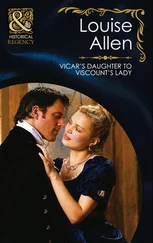Louis Barbé - Viscount Dundee
Здесь есть возможность читать онлайн «Louis Barbé - Viscount Dundee» — ознакомительный отрывок электронной книги совершенно бесплатно, а после прочтения отрывка купить полную версию. В некоторых случаях можно слушать аудио, скачать через торрент в формате fb2 и присутствует краткое содержание. Жанр: foreign_antique, foreign_prose, на английском языке. Описание произведения, (предисловие) а так же отзывы посетителей доступны на портале библиотеки ЛибКат.
- Название:Viscount Dundee
- Автор:
- Жанр:
- Год:неизвестен
- ISBN:нет данных
- Рейтинг книги:3 / 5. Голосов: 1
-
Избранное:Добавить в избранное
- Отзывы:
-
Ваша оценка:
- 60
- 1
- 2
- 3
- 4
- 5
Viscount Dundee: краткое содержание, описание и аннотация
Предлагаем к чтению аннотацию, описание, краткое содержание или предисловие (зависит от того, что написал сам автор книги «Viscount Dundee»). Если вы не нашли необходимую информацию о книге — напишите в комментариях, мы постараемся отыскать её.
Viscount Dundee — читать онлайн ознакомительный отрывок
Ниже представлен текст книги, разбитый по страницам. Система сохранения места последней прочитанной страницы, позволяет с удобством читать онлайн бесплатно книгу «Viscount Dundee», без необходимости каждый раз заново искать на чём Вы остановились. Поставьте закладку, и сможете в любой момент перейти на страницу, на которой закончили чтение.
Интервал:
Закладка:
It was not till nearly ten years later that Charles II. was really restored to the throne. The event was hailed with joy by the Presbyterians, who looked upon it as the accession of a covenanting king, and who founded their hopes, not only on the promise made at Scone, but also on a letter which Charles had forwarded, through Sharp, to the Presbytery of Edinburgh, to be communicated to all the Presbyteries in Scotland, and in which he expressed his resolve to protect and preserve the government of the Church of Scotland, as settled by law, without violation.
But the law itself was to be modified in such a manner as to enable the King to violate the spirit of his promise whilst leaving him a verbal quibble with which to justify his breach of faith. On the 9th of February an Act was passed annulling the Parliament and Committees of 1649, that is, declaring those proceedings to be illegal, by which Presbyterianism had been established on its firmest foundations. Less than three weeks later, two other Acts were passed with a view to preparing the way for a complete revolution in Church matters. The first of them, known as the Act Rescissory, had for its objects the annulling of the ‘pretended Parliaments’ of the years 1640, 1641, 1644, 1645, 1646, and 1648 – a measure which Principal Baillie described at the time as ‘pulling down all our laws at once which concerned our Church since 1633.’ The other, which purported to be ‘concerning religion and Church government,’ was substantially an assertion and recognition of the King’s claim to be considered as head of the Church. It declared that it was his full and firm intention to maintain the true reformed Protestant religion in its purity of doctrine and worship, as it had been established within the kingdom during the reigns of his father and of his grandfather; to promote the power of godliness; to encourage the exercises of religion, both public and private; and to suppress all profaneness and disorderly walking; and that, for this end he would give all due countenance and protection to the ministers of the Gospel, ‘they containing themselves within the bounds and limits of their ministerial calling and behaving themselves with that submission and obedience to his Majesty’s authority and commands that is suitable to the allegiance and duty of good subjects.’ A concluding clause provided that, notwithstanding the Rescissory Act, the ‘present administration by sessions, presbyteries, and synods – they keeping within bounds and behaving themselves’ – should, ‘in the meantime’ be ‘allowed.’
The official toleration of Presbyterianism lasted till the 27th of May 1662. On that day an Act of Parliament, after declaring in its preamble that the ordering and disposal of the external government and policy of the Church properly belonged to the King, as an inherent right of the Crown, and by virtue of his royal prerogative and supremacy in causes ecclesiastical, proceeded to re-establish the ancient government of the Church by the sacred order of Bishops. A further step was taken on the 5th of September of the same year by the imposition of a test on all persons in public trust. Before entering upon the duties of any office under the Crown, they were called upon to subscribe a declaration setting forth that they judged it unlawful in subjects, under pretence of reformation, or for any motive, to enter into leagues and covenants; that they more especially considered the Solemn League and Covenant to have been contrary to the fundamental laws and liberties of the kingdom; and that they repudiated any obligation laid upon them by their former sworn recognition and acceptance of this bond.
As a sequel, an Act not of Parliament but of Council, ordained that the Covenant should be burnt by the hand of the common hangman. Prior to this, however, on the 11th of June 1662, an Act concerning such benefices and stipends as had been possessed without presentations from the lawful patrons deprived the Church of the right claimed by it of calling and choosing its own ministers. Under its provisions, no minister admitted subsequently to the year 1649 could possess any legal claim to his stipend unless he obtained a new presentation, and collation from the bishop of the diocese.
The number of those that consented to make the required application was so small that it was thought necessary to have recourse to the Privy Council for the purpose of enforcing the new law. On the 1st of October, an order was issued which deprived the recusant ministers of their parishes, and required them, with their families, to remove beyond the bounds of their respective presbyteries before the first day of the following November. The Archbishop of Glasgow, at whose instance this coercive measure was adopted, had asserted that there would not be ten in his diocese who refused compliance, under dread of such a penalty. The result falsified his prediction. Nearly four hundred ministers throughout Scotland abandoned their benefices, and subjected themselves and their families to the hardships and privations of banishment rather than recognise the new modelling of the Church.
In many cases the ejection of the ministers and the loss of their stipends did not prevent them from continuing the duties of their office. Secret meetings, either in private houses or in secluded localities, replaced the ordinary services of the Church. For the purpose of checking this violation of the law, the Council, on the 13th of August 1663, again intervened with an Act. It commanded and charged all ministers appointed in, or since, the year 1649, who had not subsequently obtained presentations from the patrons, and yet continued to preach or to exercise any duty proper to the functions of the ministry, either at the parish churches or in any other place, to remove themselves, their families and their goods, within twenty days, out of their respective parishes, and not to reside within twenty miles of them, nor within six miles of Edinburgh or any cathedral church, or three miles of any burgh within the kingdom.
In 1665, this Act was extended so as to include the older ministers, that is, those who had obtained their livings prior to the year 1649; and, on the same day, a proclamation against conventicles and meetings for religious exercises was published. It warned all such as should be present at these unlawful gatherings, that they would be looked upon as seditious persons, and should be punished by fining, confining and other corporal punishments, according to the judgment of the Privy Council, or any having the King’s authority.
To replace the recusant clergy, a number of ministers, King’s curates, as they were called, had been appointed by the bishops. They were so coldly received by the people that, to provide them with congregations, the Privy Council commanded all loyal subjects to frequent the ordinary meetings of public worship in their own parish churches; and required magistrates to treat those who kept away as though they were Sabbath breakers, and to punish them by the infliction of a fine of twenty shillings for each absence. These measures having proved ineffective, the pecuniary penalty was greatly increased by a subsequent Act of Parliament. For refusing to recognise the curates, each nobleman, gentleman or heritor was to lose a fourth part of his yearly revenue; every yeoman, tenant or farmer was to forfeit such a proportion of his free moveables (after the payment of the rents due to the master and landlord) as the Privy Council should think fit, but not exceeding a fourth part of them; and every burgess was to be deprived of the privilege of merchandising and trading, and of all other ‘liberties within burgh,’ in addition to the confiscation of a fourth part of his moveable goods. Further, to prevent any evasion of the law against conventicles, proclamations issued at various times, prohibited all preaching and praying in families, if more than three persons, besides the members of the household, were present; and made landlords, magistrates and heads of families answerable for the default of those under their charge to conform to the episcopal government and ritual.
Читать дальшеИнтервал:
Закладка:
Похожие книги на «Viscount Dundee»
Представляем Вашему вниманию похожие книги на «Viscount Dundee» списком для выбора. Мы отобрали схожую по названию и смыслу литературу в надежде предоставить читателям больше вариантов отыскать новые, интересные, ещё непрочитанные произведения.
Обсуждение, отзывы о книге «Viscount Dundee» и просто собственные мнения читателей. Оставьте ваши комментарии, напишите, что Вы думаете о произведении, его смысле или главных героях. Укажите что конкретно понравилось, а что нет, и почему Вы так считаете.












